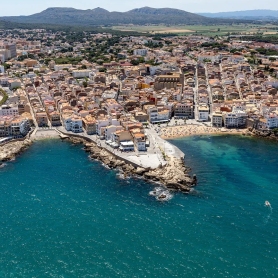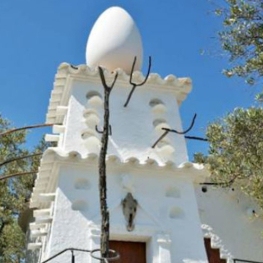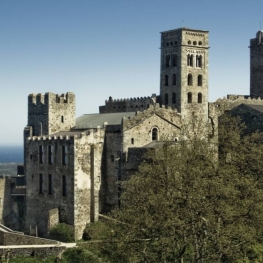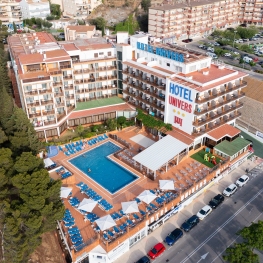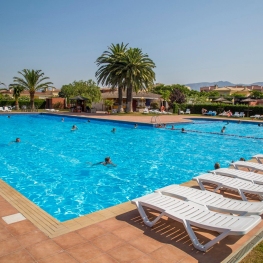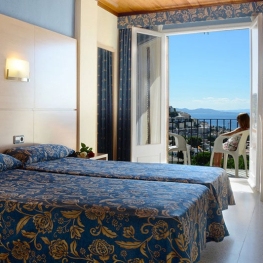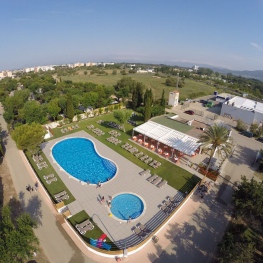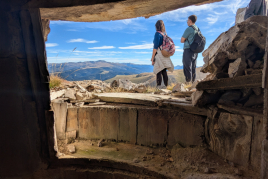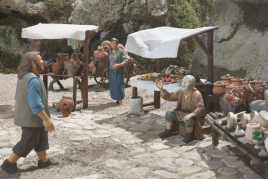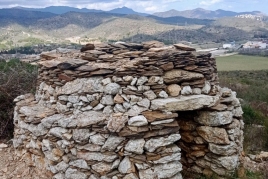The monastery of Sant Pere de Rodes
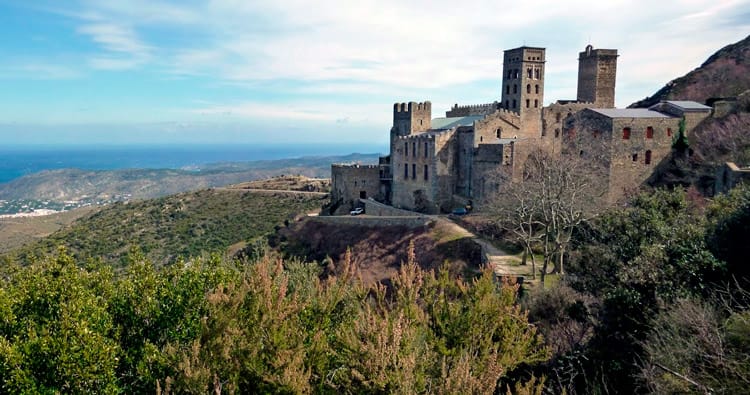
The monastery of Sant Pere de Rodes, also known as a legend monastery fantastic stories that surround it, is located in an idyllic and bucolic.
This is immersed, with homogeneity, in a setting of rugged mountains, north of Cape Creus, where the raging sea pike of the Costa Brava and facing constantly to the Tramuntana own Empordà and the hotel overlooks the bay of the Port de la Selva .
The exact reason for your location at this point in the Catalan geography is still remote. However, what is certain is that this monastery, born and built in the middle of one of the most beautiful landscapes of the Mediterranean, is one of the most important monuments of Catalonia, which has also contributed to a unique ZIP the territory and, more specifically, of El Port de la Selva .
Past and from the slope devout worship space approached people to divinity. So it became an important place of pilgrimage.
Today, a visit to this monastery involves other motivations but deep interest in this is still their unquestionable beauty and domain architectural features on the landscape at the confluence of the sky, the sea, the wind and the mountains.
The birth of a monastery
In the monastery of Sant Pere de Rodes various moieties found that its origins lie in ancient times. These correspond to an ancient temple of worship, before the new church, which belonged to the group of buildings of the monastic cell dedicated to St Peter and which news since 878. But it was not until after half a century or so, started the birth of the great monastery church building.
 The monastery was formed by terraces resting on the slope of the Verdera mountain and church, as any medieval times, was built with a Latin cross with three naves and three apses. Throughout the twelfth century reforms were made ??and built the Galilee, in front of the church, containing tombs and burial tombs, and several covers, including Cabestany Master dividing the space of the church.
The monastery was formed by terraces resting on the slope of the Verdera mountain and church, as any medieval times, was built with a Latin cross with three naves and three apses. Throughout the twelfth century reforms were made ??and built the Galilee, in front of the church, containing tombs and burial tombs, and several covers, including Cabestany Master dividing the space of the church.
Sant Pere de Rodes also had a Holy Door is opened only during Jubilee year, as happens in Santiago de Compostela.
This monastery was surrounded by a great life until the end of the fourteenth century, it fell into decline, and until 1835 it was abandoned.
Sant Pere de Rodes, pilgrimage space
The monastery of the order of St. Benedict, became an important place of pilgrimage. It is, therefore, that the famous Camino de Santiago, which runs through Catalonia, begins in this monument.
 It must be said, however, that initially, this monastery was left out of official roads leading to Santiago de Compostela, which was the third destination reference for Christian pilgrimage. But, on the contrary, was a gateway for those heading to Rome and the Holy Land.
It must be said, however, that initially, this monastery was left out of official roads leading to Santiago de Compostela, which was the third destination reference for Christian pilgrimage. But, on the contrary, was a gateway for those heading to Rome and the Holy Land.
Its importance as a place of pilgrimage, besides being a place of passage, lies in the grant by Pope Benedict VI Hildesindo abbot and the other monks in the monastery, in the year 979, the powers granted to them indulgences that corresponded to various historical events, those devotees who visited in jubilee year and that they could not move to Rome.
Since then the pilgrimage became evident and increased during and after the eleventh century.
The cloister humanized environment
The monastery is located in a natural landscape of great beauty and dehumanized. The nearest population center to the monument is the Vall de Sant Creu, a small village that belongs to El Port de la Selva .
 In this town, from where it starts, usually, the tour and walk with signs to the monastery is the church of Sant Fruitós, which is considered to have been built around the same time that the church of Sant Pere de Rodes.
In this town, from where it starts, usually, the tour and walk with signs to the monastery is the church of Sant Fruitós, which is considered to have been built around the same time that the church of Sant Pere de Rodes.
The maritime landscape characterized by the Cabo de Creus and the proximity to the sea is contrasted by the profile that draws the Verdera mountain range.
This ridge, full of risks and streams provide water to the monastery allowed. Today, the fountain remains Raig or Monks, very near the place of worship, which provides water from these mountains.
However, the water is led to the monastery Verdera through a tank that is located outside the walls of the Castillo de San Salvador, a 25-minute walk from Sant Pere de Rodes.
The origins
It is not known exactly what the real origin of the monastery of Sant Pere de Rodes, although construction is surrounded by legends. There is a legend that helps to understand why the location of the monastery in this space. It is said that in the past, where we place the tip of the Cabo de Creus, the entry of land in the sea, known as the Cape of Venus but this came to be called with the name of the creu from time a Christian crew that sailed were found in a storm that threatened to kill, which begged God for their lives and were saved.
 Also, the most popular legend tells the foundation of the monastery comes from the sea and the Christianization of the mountains of Cape Creus.
Also, the most popular legend tells the foundation of the monastery comes from the sea and the Christianization of the mountains of Cape Creus.
Narration says that this cloister was created with the landing, in the year 608, a few monks in the territory of Rome wore precious relics, including the remains of St. Peter the Apostle and other saints, in order to guard them and protect them from threats. The monks believed that which he is, currently, the monastery was a safe place to hide them. So, like, an enclave with breathtaking scenery.
When the threat became relics wanted to recover but not located, as they could not find the cave where they were buried. And, not to abandon them, built in the place the shrine of Sant Pere de Rodes and thus establish the monastic life.
What to do
Casa-Museu Salvador Dalí
Cadaqués (a 8.4 Km)Admire the artistic interior of what was Dalí's residence for more than…
Ciutadella de Roses
Roses (a 8.5 Km)Discover the Ciutadella of Roses: a fascinating journey through 2,500 years of…
Monestir de Sant Pere de Rodes
El Port de la Selva (a 3.7 Km)The Monastery of Sant Pere de Rodes is one of the numerous…
Where to sleep
Hotel Univers
Roses (a 9.4 Km)Discover Hotel Univers, a historic hotel in Roses located on the seafront,…
Càmping Mas Nou
Castelló d'Empúries (a 11.9 Km)Enjoy your family holiday in the heart of the Costa Brava, close…
Càmping Rodas
Roses (a 9 Km)Camping Rodas is a family-friendly and quiet campsite located in the middle…


